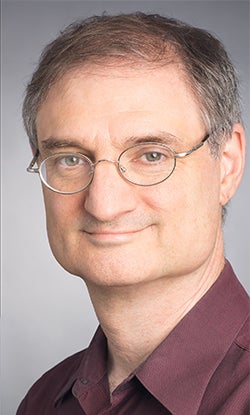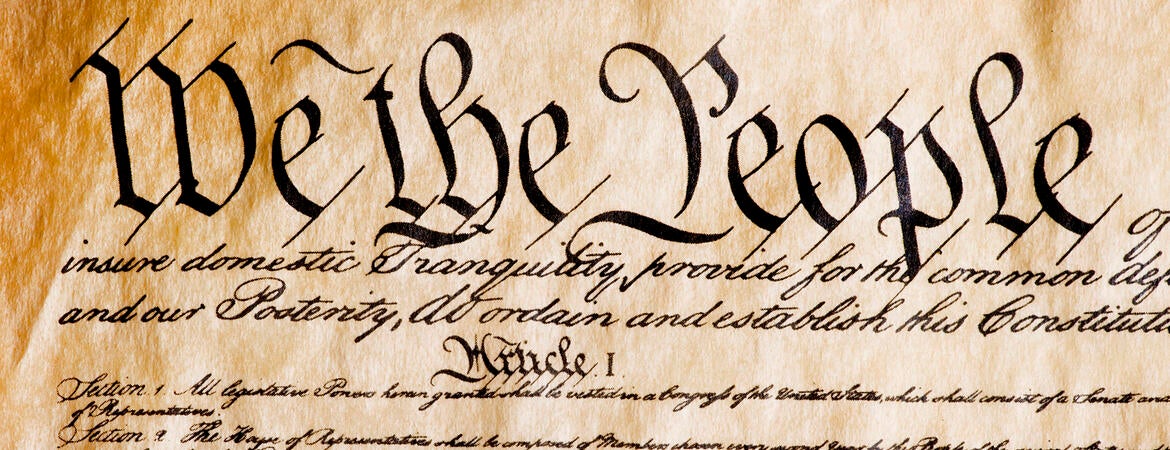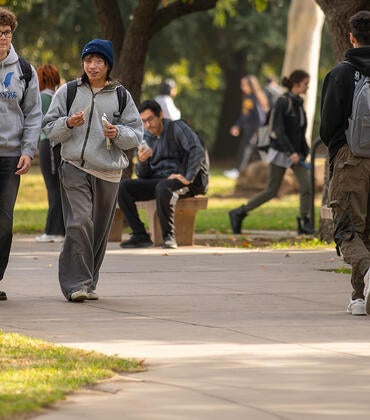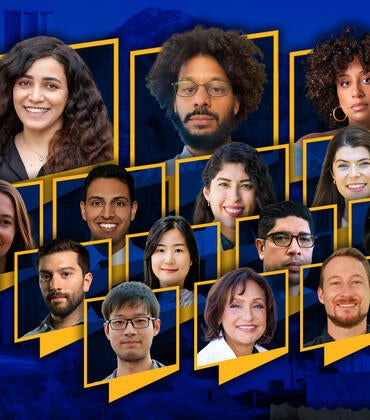The UCR-led Civic Engagement Research Group will receive $600,000 in grants for its Civic Impacts Project, which aims to improve civic education in the United States and strengthen democracy.

The research group is led by Joseph Kahne, the Ted and Jo Dutton Presidential Professor for Education Policy and Politics in the School of Education, and is a joint effort with David Campbell, the Packey J. Dee Professor of American Democracy at the University of Notre Dame, and David Kidd, the Chief Assessment Scientist for Harvard’s Democratic Knowledge Project.
Their project will receive $500,000 from the Carnegie Corporation of New York and $100,000 from the Stuart Foundation.
“The goal is to create robust new measures of civic learning opportunities and outcomes in public schools in order to help create more effective civic education in the U.S.,” Kahne said. “We will identify six priority areas for metrics tied to civic education goals and strategies.”
Historically, funding for both civic education and civic education research has been limited. As a result, those seeking to make decisions on civic education often lack the evidence required to productively guide policy and practice, Kahne said. This funding aims to change that. The metrics developed will clarify ways in which education can support the pursuit of a more democratic society.
“The Civic Impacts Project gives us the opportunity to bring researchers from many disciplines together with those working for change in schools to create new measures and then put them to use,” Kahne said.
This work will align with the Educating for American Democracy Roadmap, a nonpartisan framework designed to improve K–12 civics and history education in the U.S. It was launched in 2021 with funding from the National Endowment for the Humanities and the U.S. Department of Education, and was developed by more than 300 scholars, educators, and practitioners from across the political spectrum.
“If we are going to scale robust new approaches to civic education, we need to be able to measure the learning opportunities that students are receiving and their impact on desired civic outcomes, such as the ability to analyze issues and engage productively with those who hold differing opinions,” Kahne said.
The Civic Impacts Project is organizing scholars to develop research briefs and essential next steps for metric development. The briefs will be discussed and refined over the course of the project at two convenings. Building on the work completed during the grant period, the project plans to field-test the metrics in partnership with key stakeholders and districts.
“We are hopeful this work can help schools play their important role supporting democracy in this challenging time,” Kahne said.




